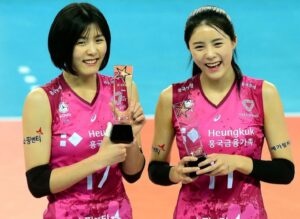
It began in the sports world, when superstar volleyball twins Lee Jae-yeong and Lee Da-yeong were hit with accusations of bullying. After admitting to physically and verbally abusing teammates in the past, both sisters were dismissed from the national team.
This first incident sparked a wave of bullying accusations towards South Korean celebrities from all arenas, particularly impacting the entertainment industry. As of March 2021, dozens of idols have been swept up in bullying allegations, including but not limited to Too’s Woongi, (G)I-dle’s Soojin and Soyeon, Stray Kids’ Hyunjin, Seventeen’s Mingyu, The Boyz’s Sunwoo, Loona’s Chuu, Everglow’s Aisha, Monsta X’s Kihyun, Itzy’s Lia, Hyuna, and pretty much the whole of girl group April. Prominent actors such as Jo Byeong-gu, Park Hye-soo, and Ji Soo have also been accused of bullying.
With so many stories coming in at relatively the same time, it is tempting to come up with a one size fits all reaction to the accusations. For instance, “Banish them all!” or “These accusations are all completely false and nonsensical.” Unfortunately, each case comes with its very own specific set of circumstances, level of credibility, and severity in terms of the actions alleged. Some accusations have come to quick and relatively straightforward resolutions. Others continue to drag on in often increasingly messy and confusing ways.

The situation has left many Hallyu fans feeling overwhelmed, drowning in a sea of contradictory narratives, company statements, cryptic social media posts, and elaborate fan theories. The goal of this article is not to sort through all that — unfortunately, that is a more or less impossible task at this point. Rather, the hope is that by taking a critical look at this firestorm of bullying accusations, it may be possible to learn how and why this phenomenon emerged, what truths it reveals about the nature of the South Korean entertainment industry, and what impact it can and should have on Hallyu fans worldwide.
One of the most obvious questions that springs to mind is why now? Bullying has long been a prominent issue in South Korean society. Presumably, many of the people who are stepping forward with stories of bullying at the hands of celebrities have nursed these bad memories for years. Why is this the moment that so many are speaking out?
Those who are inclined to dismiss all the claims wholesale might say that the group timing of them proves it is a giant conspiracy. In reality though, it is not surprising in the least that the Lee sisters’ story may have inspired other bullying victims to share their recollections, and they in turn motivated others, creating a chain reaction. That is exactly how movements work. The trend-like nature of these bullying accusations does not automatically render them untrustworthy.
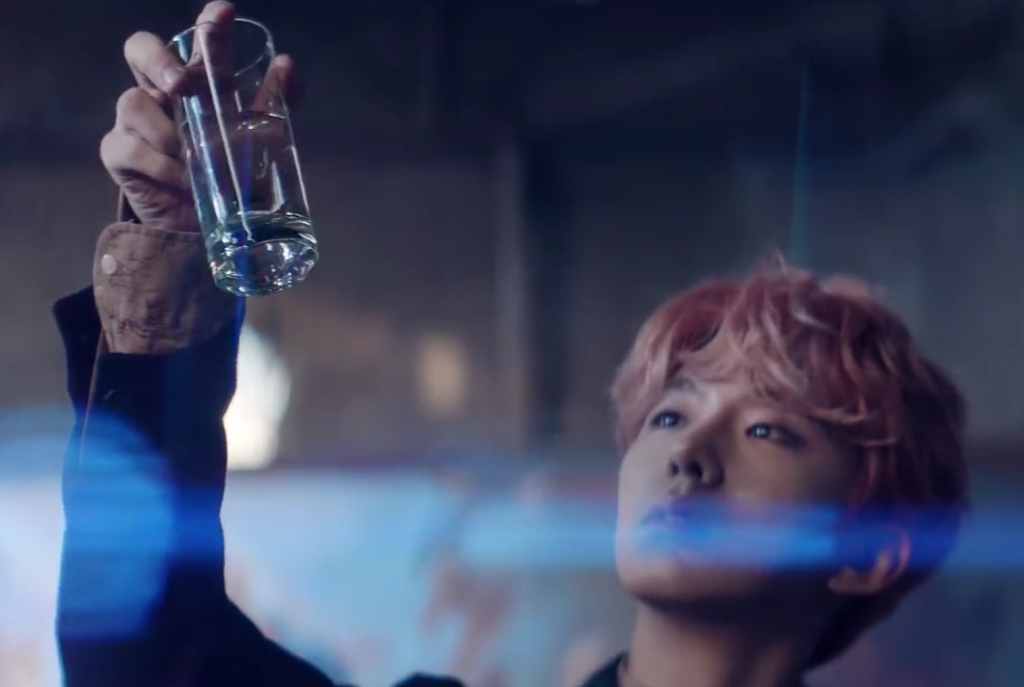
Additionally, there was one concrete factor besides the Lee twins’ scandal that may have prompted immediate action. At the end of February, search platform Naver’s real-time search function ended. This led many to fear that accusations against celebrities would not get significant attention going forward, given that the real-time search function had been a method of effectively spreading news in the past. That concern may have propelled folks to jump at the opportunity to air any past grievances sooner rather than later.
Of course, the central question in many of these scandals is just how credible those grievances are. The main forum for dissemination of information in these cases is social media, which is not exactly known for its reliability. South Korea, for instance, offers plenty of web portals and social media sites, which have been used by victims to go public with their past experiences. The information may spread at the speed of light, but have often been rendered fake or not credible.
Among the many shocking things the bullying allegations brought along were also the divergent reactions. The scandals contributed once more to the juxtaposition of Korean fans against the international fan community.
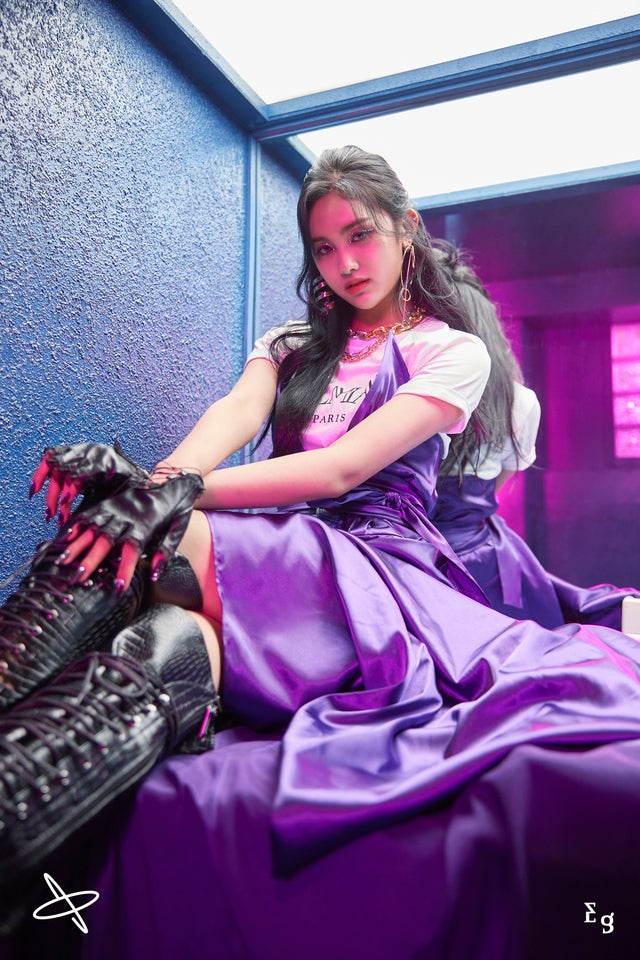
As bullying is an ubiquitous issue in Korea, Korean fans and the public generally reacted negatively to allegations. Fans demanded idols leave their group and cease activities, generally refusing to believe companies’ statements to protect their idols or claim their innocence. International fans, on the other hand, have for the most part protected idols and actors. They often reject the allegations and defend idols by claiming the bullying did not happen in the first place or that the idols have changed and matured, now being genuinely regretful about their past actions.
Why is the contrast between international and Korean fans so stark? It is hard to pinpoint one sole answer, but due to a lack of cultural or language knowledge, fans might fail to grasp all information or cultural notions. Mistranslations and the circulation of wrong information often lead to a one-sided depiction in favor of the idols, who are portrayed as flawless beings.
One such example is the allegations surrounding (G)I-dle’s Soojin, who was accused of school bullying by the older sister of a victim. As soon as the allegations spread, actress Seo Shin-ae, who attended the same high school as Soojin, started uploading cryptic posts on her Instagram account which seemed to be referring to the idol. Soojin came forward with two statements, admitting to being a rebellious student, but denying the bullying. In her second statement, she called out Seo Shin-ae asking her to provide proof. Seo Shin-ae has now issued a statement confirming that Soojin did bully her in the past.
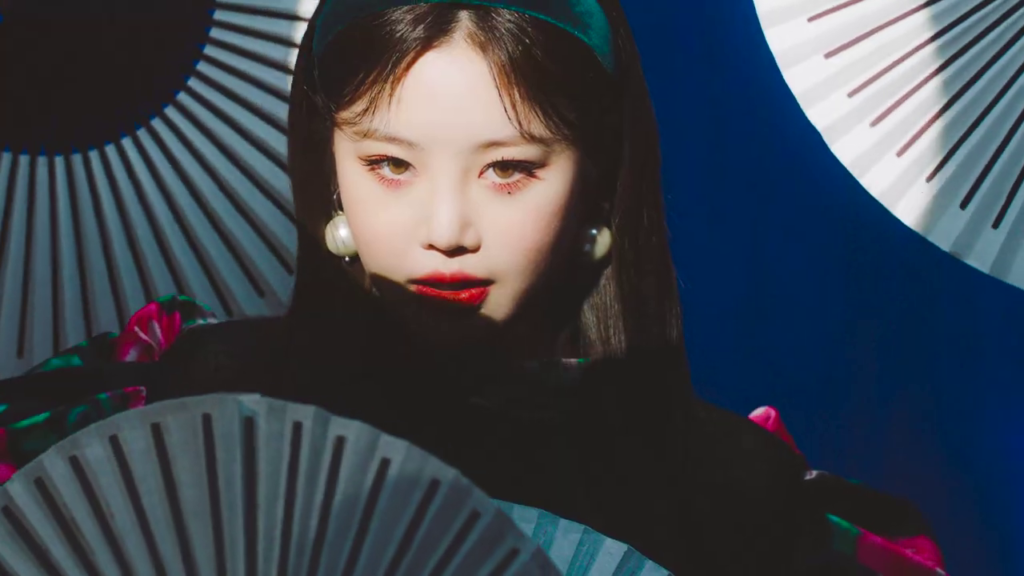
A look at social media shows: international fans defending Soojin, posting hateful comments towards Seo, and accusing her of falsified information. No one is paying attention to the fact that Cube Entertainment did not handle this well, but is now cleverly making use of Korea’s strict defamation laws; Seo Shin-ae does not seem to have any tangible proof, something that Korean laws demand.
Amongst all the talk of objectivity and truth finding, it feels ultimately worth mentioning that companies exist not only to find, foster, and support artists and creatives, but to ensure their own continued existence as well. Time and time again, artists that break from the bounds of their initial companies (or do it alone from the very beginning), such as Holland and Kang Daniel, have expressed their struggles within the industry without an overseeing company to manage them.
In the case of Kang Daniel who founded his own company, he finds it awkward to sign as both CEO and artist simultaneously while also managing his own responsibilities as a musician. Creative and financial freedom have allowed him to have free reign over the music he produces, as well as to take hiatuses for mental health without fear of his status as an artist.
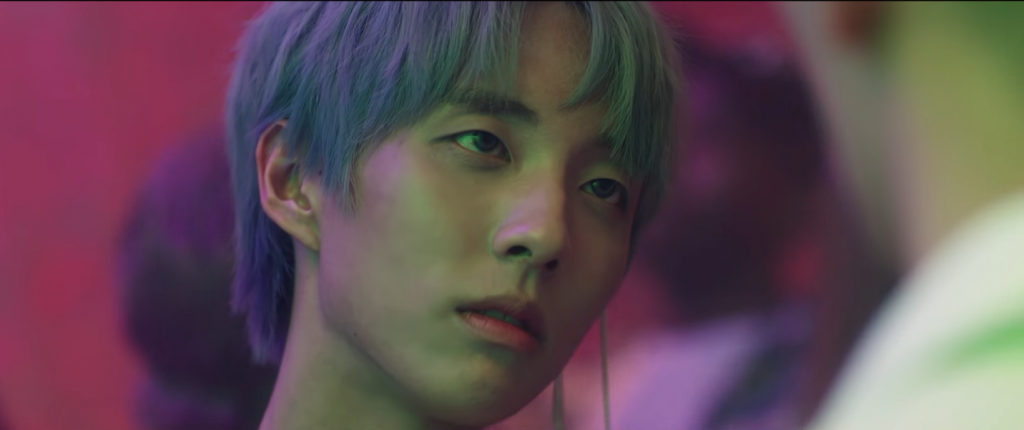
In the case of Holland, this meant funding albums and booking performances. Since his debut as one of the only openly LGBTQIA+ idols, he has yet to appear on a music show or variety show and has performed predominantly outside of South Korea. This is also an LGBTQIA+ consideration as well as a financial one, but he has expressed in posts to fans how difficult his journey has been without seeking the backing of a company.
Because of this seemingly necessary foundation in the industry, companies are allowed and expected by fans and artists to secure their own existence and hold themselves accountable, or at least appear to. In relation to the recent scandals, this has manifested in waves of statements regarding all the rumors, allegations, and evidences that continue to come to light. However, aside from the rare case when government bodies become involved, much of the consequential newsmaking is accomplished from company to fans or from investigative journalists to the media (i.e. Dispatch). As situations continue to develop, change, and evolve, fans are left with breadcrumbs, often never receiving the full truth, for better or worse.

A case worth mentioning here is the allegations surrounding actress Park Hye-soo, who has been accused of middle school bullying. Several victims and witnesses have come forward with accusations against the actress, with her company, Studio Santa Claus Entertainment, denying the allegations in a number of statements that all faced criticism due to how unprofessional they were. As Park Hye-soo kept silent on the accusations, she faced even more criticism.
In a surprising turn of events, Dispatch revealed text messages between Park and her friends, which illustrated that Park is innocent, but the reaction to these messages was at best mediocre; many believed that Studio Santa Claus Entertainment paid Dispatch to save Park’s image. To make matters worse, Park’s new drama Dear.M was supposed to air and has now been put on hold. Should the drama be cancelled, Park’s company would have to compensate the production staff. Many are viewing this as the motive behind Studio Santa Claus Entertainment defending their actress at all costs. As of today, no one knows which side is telling the truth and what really happened.
With this in mind, how does one ethically grapple with the fact that as fans, consumers, or onlookers, we often never receive the full truth to begin with? To some degree, the company and trainee system are indubitably here to stay, but the way that fans can support artists and victims of bullying allegations can be controlled. Fans can choose to side with the bullied, and those who do not have companies to fight on their behalf.

One of the most evocative comparisons that comes to mind is that of a teacher and two students on the playground. If, as a teacher, a student approaches you after having gotten into a fight with another student, and they got hit in the face, would your first instinct be to get to the bottom of what happened? Or would it be to take care of the kid in question — to nurture him, put a band-aid on his wounds before seeking out the other student to figure out how the fight started to begin with? One would hope it would be the latter rather than the former.
Oftentimes it is easy to get lost in the details: to consider theories, defend our favorites, and to grapple with how the image that we had come to know is crumbling before us. But this often leaves out the person who was bullied or exploited in the process already. Artists are often bound by fierce and binding non-disclosure agreements that prevent them from speaking publicly about anything they experience while under their label. By caring for the vulnerable and bullied, we can simultaneously care for others, but without perpetuating toxic cancel-culture practices with grassroots approaches that emphasize the individual.
The most fitting comparison to this situation is that of Lee Hyun-joo. After leaving April, Hyun-joo has mostly remained silent, while someone claiming to be her brother speaks on her panic attacks and abuse by her fellow members. Regardless of the truth that the company will seek to uncover through legal processes, the decision to pursue legal action against her family is a cold and telling one. Fans continue to fight for and against the company’s response, while leaving Hyun-joo out of the conversation because of ethical or legal implications.
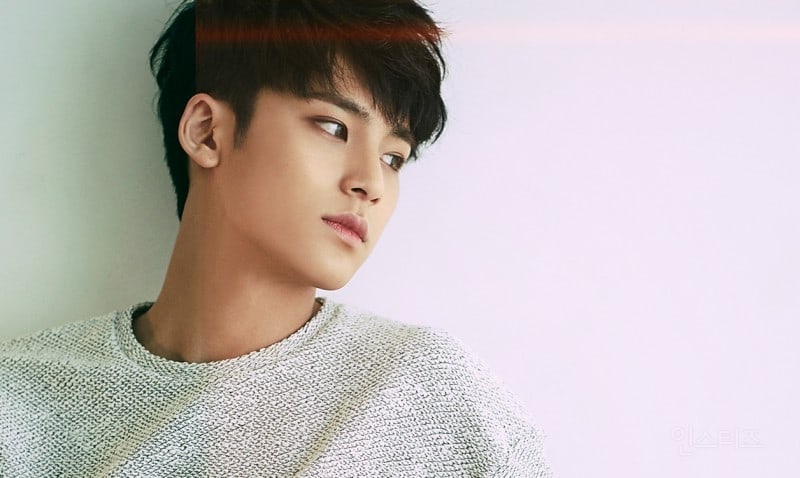
One of the arguably most ethical company responses has been that of Pledis Entertainment for Seventeen’s Mingyu. Through a series of statements, Pledis Entertainment explains in detail the interactions between the company and the individual behind the original online post, and how they have kept them within the talks and sought approval before any formal statements were made. While the validity of the statements remains unclear with merely word against word in the matter, the seemingly deliberate inclusion of the other party in decision-making and conflict resolution feels like a positive one.
“Nothing about us without us” is a phrase that was conceived to demand the participation of marginalized individuals when they are spoken about in media, social, and academic conversation. Likewise, those who are victims of bullying, harassment, and abuse are much the same. Amidst all the talk of who did what and what could be true, it would be ultimately more beneficial, efficient, and ethically sound to support these individuals and speak with them rather than about them. With the obvious influence netizens continue to hold, this seems a positive and necessary course of action going forward.
This article is a collaboration between writers Siena, Elif, and Victoria.
Our team works hard to share critical perspectives of K-pop daily, all on a voluntary basis. Donate via Ko-fi (ko-fi.com/seoulbeats) or join our Patreon (patreon.com/seoulbeats) to keep us going!
(CNN, Instagram, Korea Times, Naver, NBC News, Newsweek, South China Morning Post[1][2][3], TwitLonger (translation of Twitter material from @pledis_17), YNPN Twin Cities. Images via AFP, Cube Entertainment, DSP Media, Esquire, Holland Entertainment, JYP Entertainment, Pledis Entertainment, Starship Entertainment, Studio Santa Claus Entertainment, Yuehua Entertainment)


